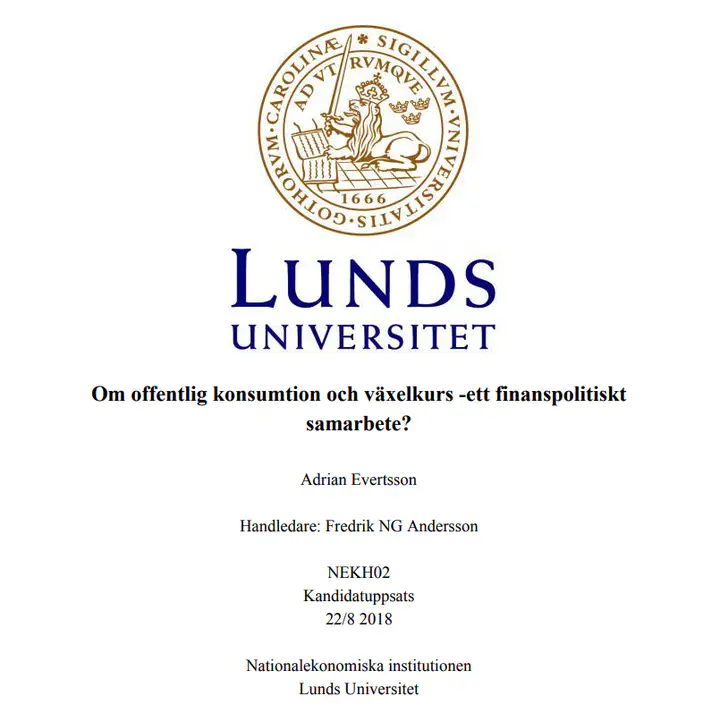On public expenditure and exchange rate -a fiscal collaboration?
 Lund University
Lund University
Abstract
This paper examines if the simultaneous fiscal consolidations of the United Kingdom and Greece after 2010 are related to each individual country’s successive development in economic growth. By using data mainly from the countries’ own national statistical institutions two hypotheses argue that each country’s development in economic growth is due to an exogenous shift of a thought IS-curve, either due to the change in government consumption, the real exchange rate or a combination of both. A linear OLS model is used and estimated in the period from 1995 to 2017 and gives little support for any one factor alone being responsible for the changes in real GDP. However, the results suggests that for the United Kingdom there might have been an interaction effect of government consumption and the real exchange rate jointly influencing the development of real GDP, albeit no such effect is seen for Greece.